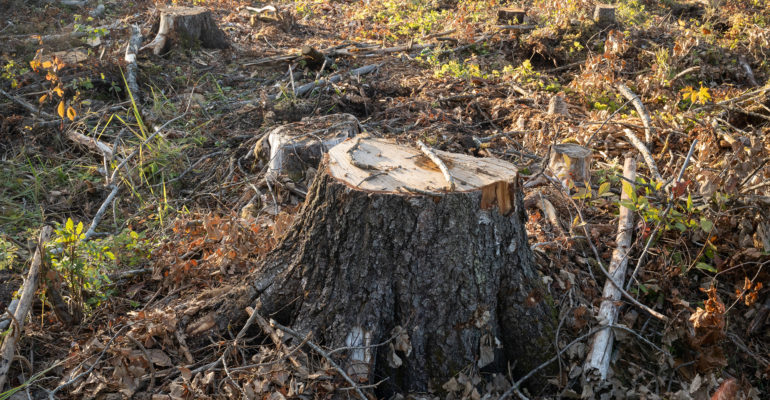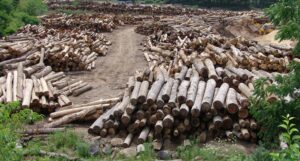Press Release: EU Parliament misses opportunity to end support for wood burning and crop-based biofuels
Today, the European Parliament voted on the revision of the EU Renewable Energy Directive (RED III). Sadly, the Parliament missed the chance to end support for burning forest biomass and to instead redirect misguided subsidies to real renewable energy sources.
The revision was meant to allow for a more rapid expansion of renewable energies, and correct negative developments.
The results mean that the EU will continue to promote the burning of forest wood as a source of renewable energy to Member States. The cultivation of food and feed crops for the production of biofuels also continues to be supported. But both run contrary to climate protection and nature conservation: Forests, which are important carbon reservoirs, are cut down for combustion in power plants, intensive agriculture endangers biodiversity and food security is threatened when food ends up in the tank of cars.
While the outcome of the vote introduces some positives, such as the end of subsidies for burning wood in electricity-only installations, this is undermined by huge loopholes: e.g. wood burning can still be supported in electricity-only power plants if these cannot easily be converted to combined heat and power.
In addition, the combustion of primary woody biomass – i.e. wood directly from the forest, not residues from sawmills or waste – will continue to count towards targets for renewable energies,up to a cap. This is in direct conflict with the recommendation of the European Parliament’s Environment Committee.
Contrary to industry claims, a “ban” on wood burning was never at stake. Removing forest biomass from the RED’s incentives would simply mean the EU would stop encouraging Member States to pay energy companies to burn forests.
In relation to biofuels, the plenary vote made some major improvements regarding biofuels produced with soy and palm, which is consistent with the Deforestation Law. But, we can regret that the high 7% maximum threshold on crop-based biofuels would mean that for some MS more crops would go into biofuels, fuelling biodiversity loss and climate change instead of alleviating the current food crisis.
Unfortunately, the timely Green and S&D proposition for reduction or specific restrictions on crop biofuels during times of food crises didn’t rally the necessary votes, showing that the majority of MEPs sitting in the Parliament do not care about the citizens they represent and chose companies’ interests over food affordability.
BirdLife Europe welcomes that the Parliament advocated significantly higher targets for renewable energy than the EU Commission’s original draft; namely 45% by 2030 instead of the original 32%.
In the forthcoming trilogue negotiations between the EU Council and Parliament, loopholes must be removed and the misguided support for wood burning and crop-based biofuels must be ended.
Ariel Brunner, Head of Policy, BirdLife Europe: “The science is clear. Burning trees and crops for energy destroys nature and exacerbates the climate crisis. It should not be supported as a renewable energy. Forests are our best weapon against climate change. It is disappointing that the Parliament today agreed to a weak compromise that does little to protect them. MEPs and the EU governments will further fuel climate change and biodiversity loss with such decisions, increasing the risks of having an unlivable environment. In the trialogue negotiations Parliament and Council must agree an end to the support for wood burning and crop-based biofuels.”
For more information, please contact:
Kenneth Richter, Bioenergy campaigner, BirdLife Europe & NABU
+49 176 2359 3712
kenneth.richter@nabu.de
Marilda Dhaskali, EU Agriculture & Bioenergy Policy officer, BirdLife Europe and Central Asia
+32 478 88 73 02
marilda.dhaskali@birdlife.org
Image credits: Karl Adami





